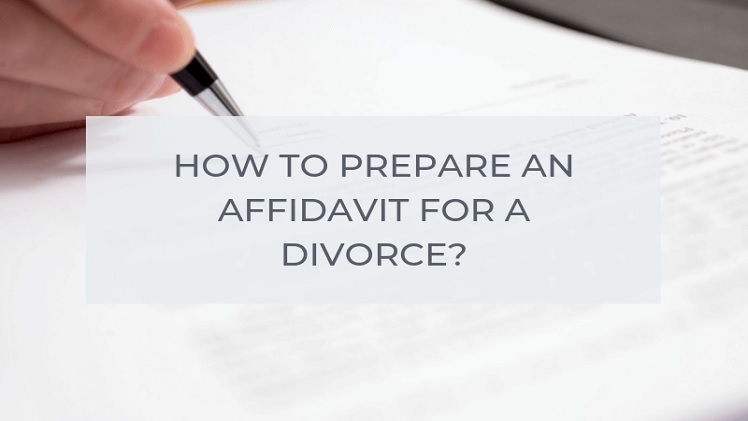
How To Write An Affidavit If It Is Required During Your Divorce Proceedings
If you have ever been party to legal proceedings or even simply watched a legal drama on television or at the cinema, you are bound to have heard the term affidavit. Affidavits are something which divorce lawyers are often required to draw up on behalf of their clients and they can sometimes form a crucial part in cases that are heard by the Family Court, including, of course, divorces.
That being said, affidavits can be a part of many types of court cases, and not just ones that relate to family law. Commercial court cases, and criminal court cases are just two examples where affidavits might be submitted by lawyers, required by the judge, or a compulsory document that is necessary under the legislation and rules of a particular legal process.
In the Australian legal system, there are a number of documents that are filed with courts, and in the case of an affidavit, it is a sworn written statement by an individual and is the equivalent of swearing under oath in a courtroom, but in this case, it is evidence given in the written form, rather than giving the evidence orally.
To be considered a valid an affidavit must meet certain requirements , and if any of them or not met, the affidavit can be dismissed and not entered in the court as evidence. Although some of these requirements might seem over the top, it has to be remembered that an affidavit could be a vital piece of evidence and as such any court would wish it to be fully compliant with the necessary legal standards that apply.
Affidavits are required to be sworn or affirmed in the presence of a legally qualified person, such as a justice of the peace although in most cases it will be the person’s lawyer. Individuals must actually swear an oath or if they are non-religious, make an affirmation, that what they have included in the affidavit is the truth, and to the best of their knowledge, accurate.
It is important to note that swearing or affirming that the written evidence in an affidavit is true is the equivalent of doing the same in a courtroom. As such the laws relating to perjury still apply, and should it be discovered that falsehoods were included in an affidavit, criminal action may be taken against the person who wrote those lies.
The affidavit must be signed on the final page, and on each page of an affidavit, it must include the person’s initials. Documents that support the evidence in an affidavit can accompany it, and these have to be stated within the affidavit.
Apart from obviously telling the truth in an affidavit, as this is going to be evidence that will support a person’s case, they need to provide as much detail and accuracy as they possibly can. The more specifics that can be included the better, and if dates and times of any relevant events can be recalled, these should be included too.
With affidavits that relate to family law, it is important not to be too opinionated but rather to simply state the facts. For example, a wife creating an affidavit should not include phrases like ‘he was a rotten father’, or ‘he is a drunken, violent bully’. Instead, she should list any dates and times where the husband became violent or stormed into the house drunk, along with any corroborating evidence.




